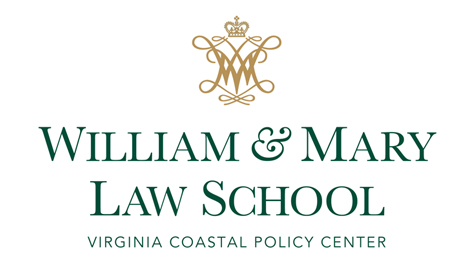Virginia Coastal Policy Clinic has a new name
The new name recognizes the success of the Virginia Coastal Policy Clinic since its inception, the significant demand for the legal and policy analyses of pressing coastal issues in the Commonwealth, and the broad interdisciplinary and stakeholder involvement in exploration of these issues. The Center will share the same goals and principles as the original clinic but with a broader message and array of activities, responsibilities, and partnerships.
“The creation of the Center reflects our commitment to addressing the extraordinary environmental challenges that face coastal Virginia,” said Law School Dean Davison M. Douglas. “We see a great opportunity for our students to help the Commonwealth navigate these difficult issues.”
The renaming comes at the close of a period of swift growth and high visibility with initial partners at the Virginia Institute of Marine Science (VIMS) and Virginia Sea Grant. The new Center designation reflects the inclusion of new partners such as the William & Mary Thomas Jefferson Program in Public Policy; the newly minted collaborative work between the Center and both the Student Environmental & Animal Law Society and the William & Mary Environmental Law and Policy Review; the incorporation of an advisory council of distinguished experts from across Virginia from the legal, scientific, and philanthropic communities, as well as the private sector; and ongoing activities such as the Conservation Dialogues with the Virginia Office of the Attorney General.
“This is the beginning of an exciting new phase,” noted Roy A. Hoagland, the Center’s director and newly appointed Professor of Practice at the Law School. “The new designation reflects the great work the students have done to date and the potential for greater accomplishments in the future.”
“As a result of the pressing needs met by the Clinic, and its maturation beyond its original scope, the time is right to expand the activities and partnerships,” said Professor Patricia Roberts who directs William & Mary Law’s Clinical Programs. “We want the Center to provide a multitude of services to the citizens, businesses, and governments of coastal Virginia while also providing the best possible experience for our students. The creation of the Center will help us meet these goals.” For instance, she said, one of the Center’s newest projects includes assisting the communities of Virginia’s Middle Peninsula with FEMA insurance education, in partnership with Wetlands Watch, the Middle Peninsula Planning District Commission, and Old Dominion University.
Roberts said students will continue to have an experiential curriculum opportunity by enrolling in the Virginia Coastal Policy Practicum offered by the Center. But the Center will also offer a number of unique opportunities for students such as assistance with externship placements with conservation and governmental organizations; competition for summer and post-graduate fellowships; publication opportunities in the environmental arena; participation in a robust speaker series from noted experts in both the scientific and legal communities; and leadership in the creation and execution of the conferences and symposia.















